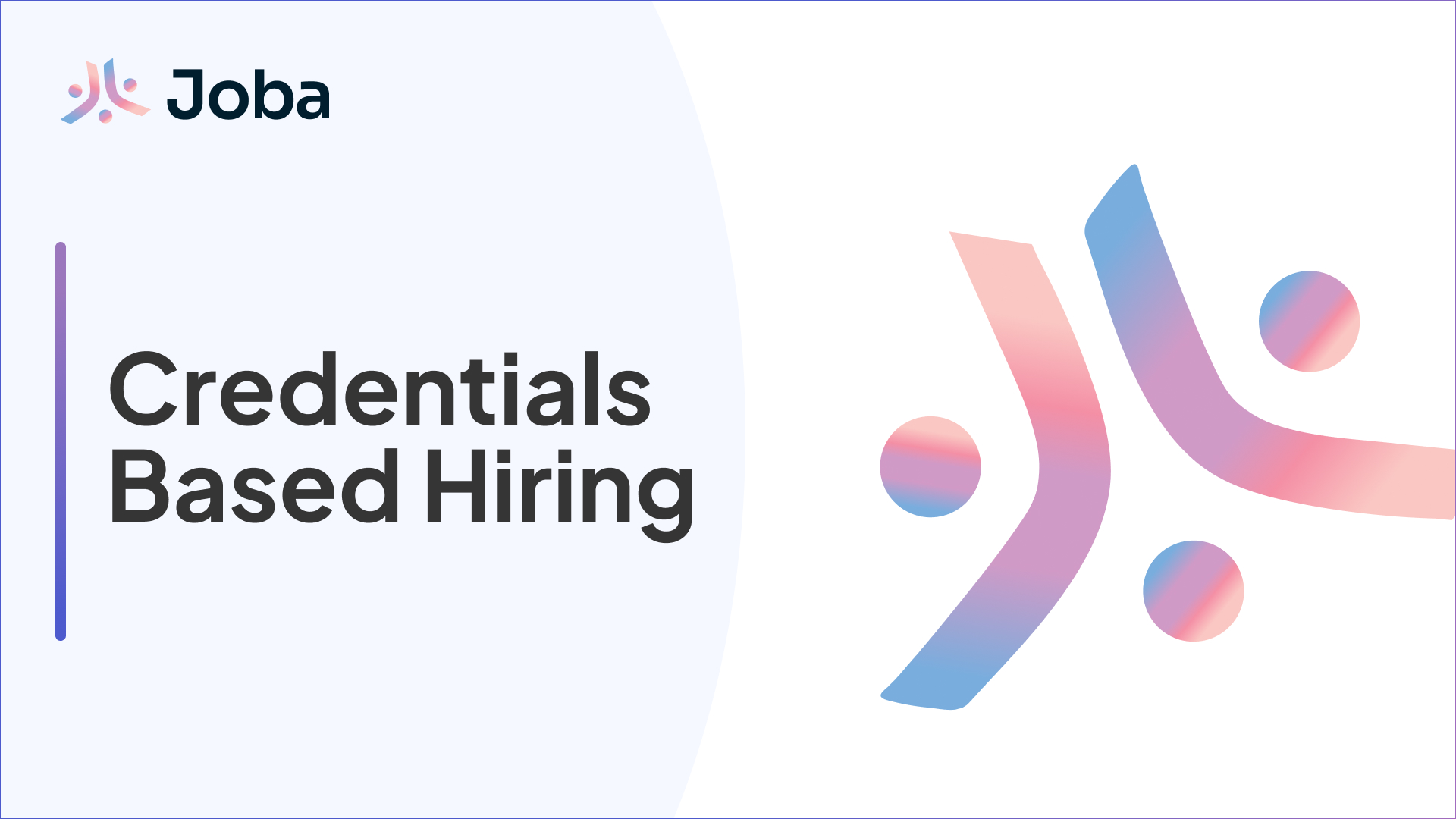Credentials-based hiring: The future of recruitment

The job market is changing rapidly, and with it, the way we hire. In the past, employers relied heavily on educational credentials to assess candidates' skills and qualifications. However, today, more and more employers are adopting a credentials-based hiring approach.
Credential-based hiring is a process of evaluating candidates based on their verified skills and competencies, rather than their educational background. This approach is more inclusive and equitable, as it allows employers to identify and hire qualified candidates from all walks of life.
There are a number of benefits to credentials-based hiring, including:
Reduced bias:
Credential-based hiring can help to reduce bias in the hiring process. By focusing on skills and competencies, employers are less likely to be influenced by factors such as race, gender, age, or socioeconomic status.
Improved candidate quality:
Credential-based hiring can help employers to hire more qualified candidates. By assessing candidates based on their skills and competencies, employers are more likely to identify candidates who are a good fit for the job and the company culture.
Increased diversity:
Credential-based hiring can help employers to create a more diverse workforce. By focusing on skills and competencies, employers are more likely to hire candidates from different backgrounds and with different experiences.
There are a number of ways that employers can implement a credentials-based hiring approach. One way is to use digital credentials. Digital credentials are verified proof of skills and competencies that can be issued by educational institutions, employers, and other organizations. Candidates can share their digital credentials with employers electronically, which makes it easy for employers to assess their skills and qualifications.
Another way to implement a credentials-based hiring approach is to use skills-based assessments. Skills-based assessments are designed to measure candidates' skills and competencies in specific areas. Employers can use skills-based assessments to screen candidates and to identify qualified candidates for interviews.
Here are some tips for implementing a credentials-based hiring approach:
Identify the skills and competencies that are essential for the job.
What skills and competencies does the employee need to have in order to be successful in the role?
Develop a skills-based assessment process.
How will you assess candidates' skills and competencies? You may want to use digital credentials, skills-based assessments, or a combination of both.
Communicate your hiring process to candidates.
Let candidates know that you are using a credentials-based hiring approach and what skills and competencies you are assessing.
Train your hiring managers.
Make sure that your hiring managers understand how to evaluate candidates' skills and competencies using a credentials-based hiring approach.
Credential-based hiring is a more inclusive, equitable, and effective way to hire. By focusing on skills and competencies, employers can identify and hire the best candidates for their jobs and build a more diverse and qualified workforce.
If you are ready to implement a credentials-based hiring approach, contact Joba Network today.
Frequently asked questions
No, some industries like health care and manufacturing require physical presence. But many fields, especially in tech and marketing, are well-suited for remote work.
Not necessarily. Many remote jobs offer competitive salaries and benefits.
There are various job boards dedicated to remote work, such as We Work Remotely and Remote OK.
The key is to set a routine, create a dedicated workspace, and use productivity tools to stay on track.
Tools like Slack, Zoom, and Asana are invaluable for remote work, aiding in communication and project management.




